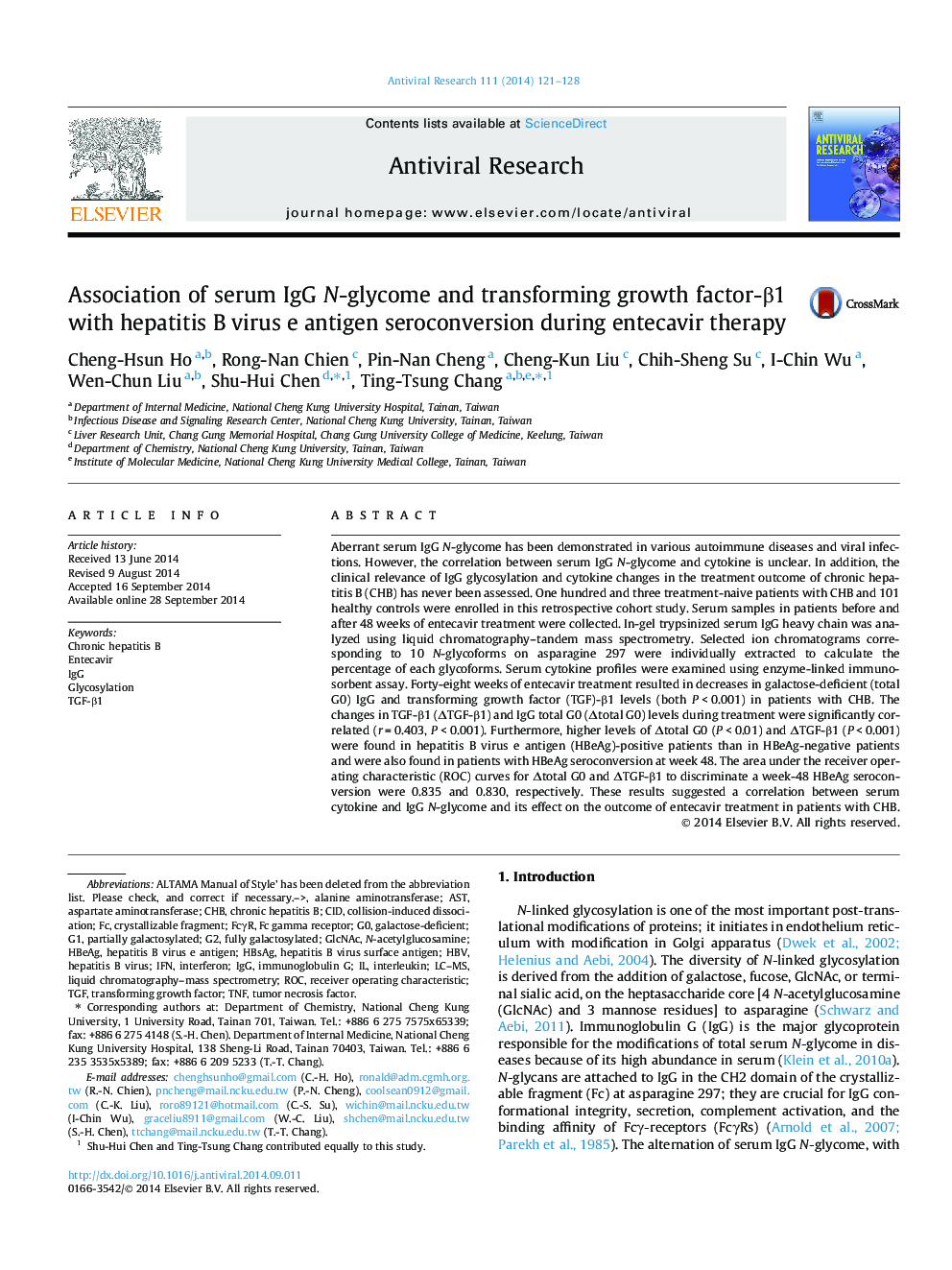| کد مقاله | کد نشریه | سال انتشار | مقاله انگلیسی | نسخه تمام متن |
|---|---|---|---|---|
| 5822135 | 1557832 | 2014 | 8 صفحه PDF | دانلود رایگان |

Aberrant serum IgG N-glycome has been demonstrated in various autoimmune diseases and viral infections. However, the correlation between serum IgG N-glycome and cytokine is unclear. In addition, the clinical relevance of IgG glycosylation and cytokine changes in the treatment outcome of chronic hepatitis B (CHB) has never been assessed. One hundred and three treatment-naive patients with CHB and 101 healthy controls were enrolled in this retrospective cohort study. Serum samples in patients before and after 48 weeks of entecavir treatment were collected. In-gel trypsinized serum IgG heavy chain was analyzed using liquid chromatography-tandem mass spectrometry. Selected ion chromatograms corresponding to 10 N-glycoforms on asparagine 297 were individually extracted to calculate the percentage of each glycoforms. Serum cytokine profiles were examined using enzyme-linked immunosorbent assay. Forty-eight weeks of entecavir treatment resulted in decreases in galactose-deficient (total G0) IgG and transforming growth factor (TGF)-β1 levels (both P < 0.001) in patients with CHB. The changes in TGF-β1 (ÎTGF-β1) and IgG total G0 (Îtotal G0) levels during treatment were significantly correlated (r = 0.403, P < 0.001). Furthermore, higher levels of Îtotal G0 (P < 0.01) and ÎTGF-β1 (P < 0.001) were found in hepatitis B virus e antigen (HBeAg)-positive patients than in HBeAg-negative patients and were also found in patients with HBeAg seroconversion at week 48. The area under the receiver operating characteristic (ROC) curves for Îtotal G0 and ÎTGF-β1 to discriminate a week-48 HBeAg seroconversion were 0.835 and 0.830, respectively. These results suggested a correlation between serum cytokine and IgG N-glycome and its effect on the outcome of entecavir treatment in patients with CHB.
Journal: Antiviral Research - Volume 111, November 2014, Pages 121-128